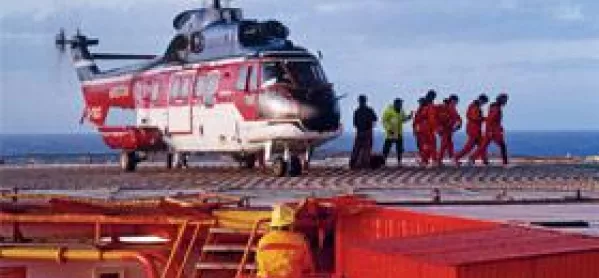It’s time to journey to the centre of the earth sciences

The oil and gas sector has backed a campaign calling for the introduction of a new Higher in earth sciences to inspire young people to pursue careers in the industry.
Trade association Oil and Gas UK told TESS that it was “strongly supportive” of proposals to develop a new qualification. Dr Alix Thom, employment and skills issues manager at the organisation, said it was “vitally important” to encourage pupils’ curiosity about earth science and arguments connected with the subject, including climate change. “Earth science is at the heart of the oil and gas industry; not only a key factor in the quest to source hydrocarbons but also a core discipline for helping to ensure they are produced safely, sustainably and with respect for the environment,” she said. According to the government, oil and gas is the largest industrial sector in Scotland, having contributed about pound;22 billion to gross domestic product in 2012. It is also predicted to be one of the country’s major economic strongholds in coming decades, with the government estimating that about 24 billion barrels of recoverable oil and gas remain in the North Sea, at a potential wholesale value of up to pound;1.5 trillion. The industry’s backing of a new qualification supports a similar call by leading geologists, reported by TESS last year. Their campaign followed the decision by the Scottish Qualifications Authority (SQA) to abolish Higher geology from 2015 because of low uptake, even though the number of students taking the Higher rose from 17 to 64 between 2012 and 2013. Supporters have since formed Earth Science Education Scotland, a group that aims to get more earth science into the curriculum, in addition to pushing for the new Higher. Henrik Jakobsen, exploration director at Maersk Oil UK, said that encouraging students to think about a career based on geology, other sciences or engineering could open up a range of possible jobs for them. Dr Thom explained that even among professions that were experiencing skills gaps, geoscientist roles were among the most difficult to fill. Although the problem mostly concerned workers at mid-career level rather than graduate level, it was crucial to ensure that people continued to come into the sector, he said. His concern was that children who were not introduced to the subject at school would be unlikely to take it up later on. Dr Ruth Robinson, senior lecturer in earth science at the University of St Andrews and director of GeoBus, an outreach project for schools, criticised a recent Education Scotland document on science in Curriculum for Excellence for failing to mention earth science or geology. “What is also strikingly absurd are the claims made about careers in the energy sector referring to these as physics-based industries linked to a predicted 95,000 jobs,” she said. “While engineering is clearly important in the energy sector, these are also geology-based industries requiring geologists to find where the natural resources are located. “So how would pupils know about those jobs with no earth science content in the curriculum? And how can teachers cover issues such as fracking with no geology background?” Last month, the Royal Scottish Geographical Society, the University of St Andrews and GeoBus coordinated the second Scotland Rocks Higher geology conference. Attendees included 39 students from seven secondary schools, as well as a number of teachers, scientists and industry representatives. “My favourite memory of the two days was the buzz that was emitted from 70-odd pupils and professionals talking at once about the diversity of careers possible in earth sciences during the `Careers Speed Dating’ event,” Dr Robinson said. Dr Gill Stewart, SQA director of qualifications development, said: “SQA fully recognises the importance of earth sciences for Scotland, but as far as we are aware, no UK university currently asks for geology as an entry requirement on to a geology course. “Taking this and the historically very low uptake of the subject into account led to the decision to consider geology as a cross-curricular subject. We are keen to look at innovative, creative ways of developing qualifications and SQA has met geology specialists and the Royal Scottish Geographical Society with a view to determining demand for an earth science qualification. Those discussions are ongoing.”
Keep reading for just £1 per month
You've reached your limit of free articles this month. Subscribe for £1 per month for three months and get:
- Unlimited access to all Tes magazine content
- Exclusive subscriber-only stories
- Award-winning email newsletters



